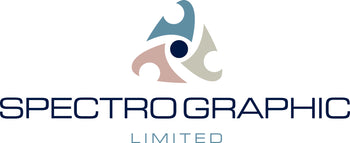Weld Inspection just got easier
Unveiling the Secrets of Weld Inspection Microscopes: A Closer Look at Quality Assurance
Welding is a fundamental process in various industries, ranging from manufacturing to construction, and its integrity is critical for ensuring the structural safety and longevity of the final product. Weld inspections play a crucial role in quality assurance, helping detect defects and irregularities that might compromise the weld's strength and performance. Among the tools that have revolutionized the field of weld inspection is the Weld Inspection Microscope. In this blog post, we'll delve into the fascinating world of weld inspection microscopes, their applications, and the benefits they offer in ensuring top-notch weld quality.
1. Understanding Weld Inspection Microscopes
Weld inspection microscopes are powerful optical instruments specially designed for examining welds at a microscopic level. They are equipped with advanced features that allow inspectors to scrutinize the weld zone with unparalleled precision, revealing even the tiniest flaws that may not be visible to the naked eye. These microscopes are indispensable in various industries, including aerospace, automotive, petrochemical, and more.
2. Features and Capabilities
a. High Magnification: Weld inspection microscopes offer high magnification capabilities, typically ranging from 50x to 1000x and beyond, enabling inspectors to observe intricate details of the weld structure.
b. Illumination: Proper illumination is essential for accurate inspections. These microscopes incorporate various lighting options, such as brightfield and darkfield illumination, to enhance contrast and highlight imperfections.
c. Imaging and Documentation: Many modern weld inspection microscopes come equipped with digital cameras and image capture capabilities. This allows inspectors to record and document their findings for further analysis, archiving, and reference.
d. Polarized Light: Some advanced models include polarized light capabilities, which aid in revealing stress patterns and potential cracks within the weld, providing valuable insights into the weld's integrity.
3. Applications
a. Defect Analysis: Weld inspection microscopes help identify defects like porosity, inclusions, cracks, and lack of fusion, enabling timely corrective measures and prevention of costly failures.
b. Material Characterisation: Inspectors can assess the microstructure of the weld zone, determining the material's hardness, grain size, and other properties, essential for ensuring the weld's overall strength.
c. Weld Process Optimisation: Microscopic examination of welds aids in optimizing welding parameters and techniques to enhance efficiency and minimize defects.
d. Research and Development: Weld inspection microscopes are valuable tools in research and development, allowing scientists and engineers to study new materials and welding methods.
4. Advantages of Weld Inspection Microscopes
a. Enhanced Quality Assurance: Weld inspection microscopes significantly improve the reliability and accuracy of weld inspections, leading to higher quality products and enhanced safety.
b. Cost Savings: Early detection of defects through microscopic examination prevents costly rework and repairs, saving both time and resources.
c. Non-Destructive Testing: Weld inspection microscopes facilitate non-destructive testing, reducing the need for destructive examination methods that can compromise the integrity of the weld.
d. Training and Education: These microscopes serve as educational tools for training welders and inspectors, helping them understand the intricacies of weld quality and defect analysis.
Conclusion
In conclusion, weld inspection microscopes are indispensable tools for ensuring the highest quality welds across various industries. Their ability to reveal microscopic defects and characteristics in welds empowers inspectors to make informed decisions, optimize processes, and deliver safer and more reliable products. As technology continues to advance, these microscopes are expected to become even more sophisticated, further elevating the standards of weld inspection and quality assurance in the future.
We have lots of Weld inspection packages for you, so call us to discuss 01943 879001
